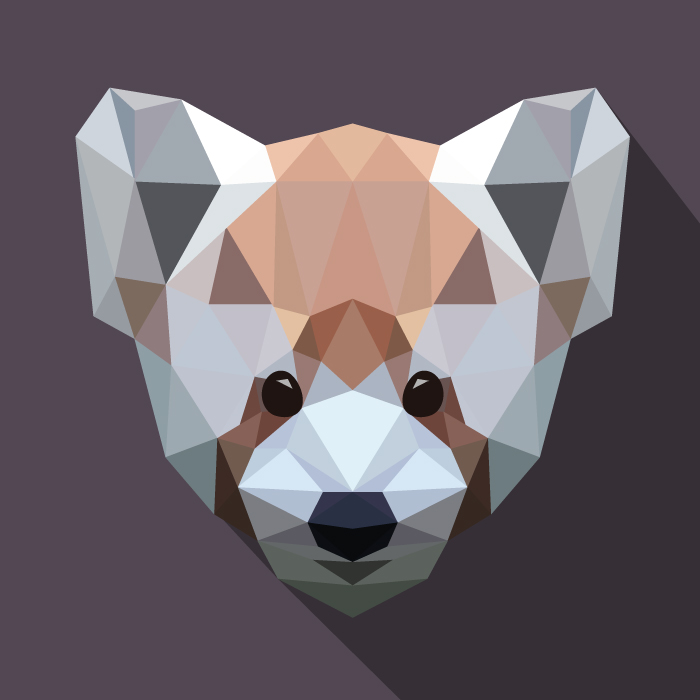Low poly animals have taken the world by storm, combining simplicity and artistry to create stunning visual representations. These geometric creatures captivate both artists and enthusiasts alike, making them a fascinating subject of exploration. In this article, we will delve deep into the realm of low poly animals, uncovering their history, artistic techniques, and significance in modern design.
In this comprehensive guide, we will not only provide insight into low poly animals but also offer tips for aspiring artists looking to create their own. From understanding the basic principles to exploring advanced techniques, this article aims to equip you with the knowledge needed to embark on your creative journey. Let's dive in!
Table of Contents
- 1. The History of Low Poly Art
- 2. Techniques for Creating Low Poly Animals
- 3. Best Software for Low Poly Design
- 4. Applications of Low Poly Animals
- 5. Inspiring Examples of Low Poly Animals
- 6. Tips for Aspiring Low Poly Artists
- 7. Joining the Low Poly Community
- 8. Conclusion
1. The History of Low Poly Art
Low poly art emerged in the 1980s as a response to the limitations of 3D rendering technology. Early video games utilized low polygon counts to achieve real-time rendering, giving rise to a distinctive aesthetic that emphasized simplicity. Over the years, as technology advanced, the style evolved, but its roots remain in the principles of minimalism and abstraction. Today, low poly animals are celebrated not only for their artistic value but also for their nostalgic charm.
2. Techniques for Creating Low Poly Animals
Creating low poly animals involves several key techniques that artists should master:
- Modeling: Start with a basic shape and gradually add details by manipulating vertices.
- Texturing: Utilize flat colors or simple gradients to enhance the visual appeal.
- Lighting: Experiment with lighting to create depth and dimension.
- Rendering: Choose appropriate rendering settings to achieve the desired aesthetic.
2.1 Understanding Polygon Count
The polygon count plays a crucial role in defining the complexity of low poly animals. Artists must strike a balance between detail and simplicity, ensuring that the final product remains visually appealing while adhering to the low poly style.
3. Best Software for Low Poly Design
Several software options cater to low poly artists, each offering unique features:
- Blender: A powerful open-source tool that provides extensive modeling and rendering capabilities.
- Maya: Industry-standard software known for its robust modeling tools.
- 3ds Max: Popular among game developers for its user-friendly interface.
- SketchUp: Ideal for beginners, offering an intuitive modeling experience.
4. Applications of Low Poly Animals
Low poly animals are utilized in various fields, including:
- Video Games: Many indie games embrace the low poly aesthetic for its nostalgic appeal.
- Animation: Low poly characters are often used in short films and animated series.
- Graphic Design: Designers incorporate low poly animals into branding and marketing materials.
- Art Installations: Artists create physical sculptures and installations inspired by low poly designs.
5. Inspiring Examples of Low Poly Animals
Here are some remarkable examples of low poly animals that showcase the versatility of this art form:
- Low Poly Wolf: A striking representation of the majestic wolf, featuring sharp angles and bold colors.
- Low Poly Elephant: A tribute to wildlife conservation, this piece emphasizes the beauty of elephants.
- Low Poly Fox: A playful interpretation of the cunning fox, combining elegance with simplicity.
6. Tips for Aspiring Low Poly Artists
If you're looking to create your own low poly animals, consider the following tips:
- Start with simple shapes and gradually build complexity.
- Experiment with color palettes to enhance your designs.
- Seek feedback from the community to improve your skills.
- Practice regularly to refine your modeling techniques.
7. Joining the Low Poly Community
Engaging with the low poly community can provide valuable insights and inspiration. Consider joining platforms such as:
- ArtStation: A hub for artists to showcase their work and connect with others.
- DeviantArt: An online community where artists can share their creations and receive feedback.
- Reddit: Subreddits dedicated to low poly art offer discussions and resources.
8. Conclusion
In conclusion, low poly animals represent a unique blend of artistry and simplicity, captivating audiences across various platforms. By understanding the history, techniques, and applications of low poly art, aspiring artists can embark on their creative journeys with confidence. We encourage you to explore this fascinating world, experiment with your designs, and share your creations with the community!
What are your thoughts on low poly animals? Share your experiences in the comments below, and feel free to explore more articles on our site for further inspiration!
Thank you for joining us on this creative journey. We hope to see you again soon!
Article Recommendations


